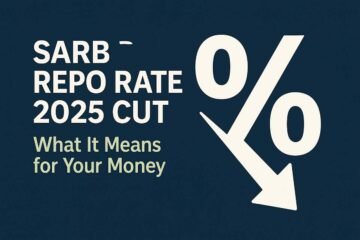Tax season in South Africa can feel overwhelming, even for experienced taxpayers. Between deadlines, forms, deductions, and ever-changing SARS requirements, it’s easy to slip up. Unfortunately, even small errors can cause refund delays, penalties, or even an audit.
To help you navigate tax season with confidence, here are five of the most common mistakes taxpayers make—and how you can avoid them.
1. Missing the Deadline
This is one of the most common and costly mistakes. SARS imposes administrative penalties for late submissions, which can quickly add up and negatively affect your tax compliance status.
- Why it matters: Filing late may not only result in fines but could also affect your ability to access certain financial products in future, such as loans or credit, since compliance certificates often require up-to-date tax affairs.
- How to avoid it:
- Mark tax deadlines in your calendar well in advance.
- Sign up for SARS eFiling notifications so you receive alerts.
- Aim to submit early in the season; don’t wait until the final days when the system is often overloaded.
2. Incorrectly Claiming Deductions
Taxpayers often either miss out on legitimate deductions or claim expenses they are not entitled to. Both can hurt your pocket.
- Common deductions people overlook:
- Medical scheme fees tax credits and qualifying out-of-pocket medical expenses.
- Retirement annuity contributions.
- Home office expenses (for those who meet SARS’s strict requirements).
- Donations to registered Public Benefit Organisations (PBOs).
- Risks of over-claiming:
Submitting claims without proper proof can trigger a SARS verification or audit. For example, home office expenses require not just proof of expenses but also that your office is used regularly and exclusively for work. - Pro tip: Keep all documentation (IRP5s, RA certificates, medical aid tax certificates, receipts) in one organised digital folder. This way, if SARS requests supporting documents, you can respond quickly.
3. Not Declaring All Income
It’s not enough to only declare the income reflected on your IRP5. SARS already receives information from employers, banks, investment houses, and even property rental platforms.
- Examples of income you must declare:
- Rental income from property.
- Freelance, consulting, or “side hustle” earnings.
- Interest earned on savings or investments.
- Foreign income (if applicable).
- Why it matters: Failing to declare this income can result in understatement penalties, interest charges, or even criminal charges in severe cases.
- How to stay compliant:
- Cross-check your own records with your SARS auto-assessment.
- Don’t assume SARS won’t know—they likely already have the data.
- Use accounting software or spreadsheets to track secondary income streams throughout the year, not just at filing season.
4. Using Outdated Banking Information
If you’re owed a refund, incorrect banking details can cause major delays. SARS has tightened its processes around refunds, and mismatched information often leads to a hold until the matter is resolved.
- Tips to avoid this mistake:
- Update your bank details on SARS eFiling or at a SARS branch before filing.
- Ensure the account is in your own name—refunds are not paid into third-party accounts.
- If you’ve changed banks, update SARS as soon as possible, as verification can take time.
- Pro tip: Always double-check your bank details during the filing process, even if you haven’t changed accounts recently. A small typo could cause unnecessary delays.
5. Assuming You Don’t Need to File
Many taxpayers believe that if their employer deducts PAYE (Pay-As-You-Earn) each month, they don’t need to file a return. While SARS sometimes exempts low-income earners from filing, most South Africans still need to submit a return.
- Who must file:
- Anyone earning more than R500,000 per year from a single employer.
- Individuals with multiple sources of income (salary + rental, freelance, or investment income).
- Those who wish to claim deductions such as retirement annuity contributions, medical credits, or travel expenses.
- Why you should file even if not required: Filing ensures your tax record is accurate and up to date, which can be helpful when applying for credit, visas, or tax clearance certificates.
Extra Tips for a Smooth Tax Season
- Use SARS Auto-Assessment carefully: Review the pre-populated information and make sure it matches your actual records before accepting it.
- Seek professional advice: If your situation is complex (multiple income streams, trusts, foreign income), a registered tax practitioner can save you stress and money.
- Keep records for 5 years: SARS can request supporting documents years later, so keep everything neatly filed.
- Leverage online tools: Use calculators for tax liability estimates, retirement savings, or home office expenses to ensure accuracy before filing.
Final Thoughts
Filing a tax return doesn’t have to be stressful. By being aware of these five common mistakes—missing deadlines, incorrect deductions, undeclared income, outdated banking info, and assuming you don’t need to file—you can avoid penalties, save time, and keep your tax record clean.
With proper preparation, organisation, and awareness of SARS requirements, tax season becomes an opportunity to ensure your finances are in order—and maybe even secure a welcome refund.



0 Comments